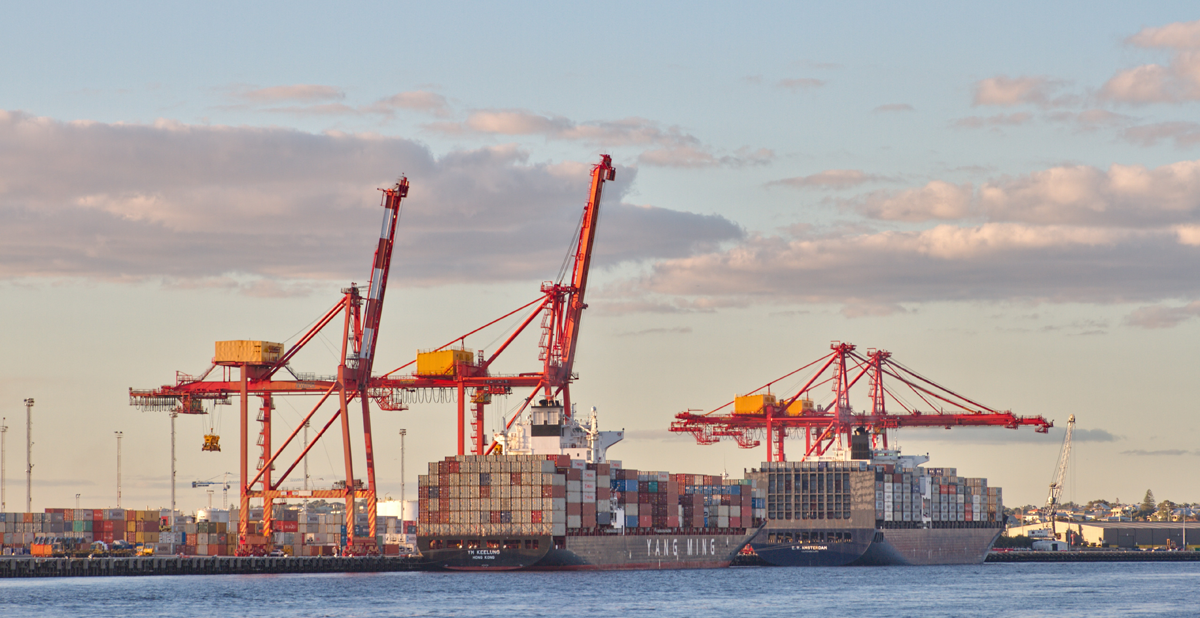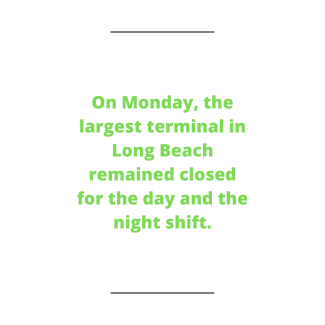Labor Disruptions Spread To More West Coast Ports

Multiple West Coast ports in California and Washington experienced disruption due to labor issues on Friday, with issues continuing into this week. The Port of Long Beach remained closed through Monday.
Port and labor representatives offered differing explanations for the disruptions, which come amid ongoing labor negotiations. Similar disruptions occurred last April.
The Port Disruptions
Last Friday, West Coast ports in California and Washington faced disruptions, reportedly due to unfilled jobs required for the ports to be fully operational. Degrees of disruption varied from minor congestion to complete shutdown.
The ports that were affected on Friday were:
- Port of Los Angeles
- Port of Long Beach
- Port of Hueneme
- Port of Oakland
- Port of Seattle
- Port of Tacoma
On Monday, Total Terminals International, the largest terminal in Long Beach, remained closed for the day and the night shift. Another Long Beach terminal, the Pacific Container Terminal, was also closed as of Monday afternoon.
- The Port of Long Beach is the second-busiest U.S. container terminal and a key trade gateway.

Without providing a specific promise or timeline, Mario Cordero, executive director of the Port of Long Beach, said the issues should be resolved expediently, according to CNBC.
“Port of Long Beach cargo has been moving through the terminals, and we do expect the commitment by the parties to continue and encourage the parties to put [a] full faith effort for a final resolution,” says Cordero.
Why Is This Happening?
The disruptions come amid negotiations between the Pacific Maritime Association (PMA) and the International Longshore and Warehouse Union (ILWU).
- The PMA has implied that the disruptions are part of staged “concerted and disruptive work actions” by the ILWU.
- The union held a stop-work meeting Thursday; union members did not show up for work Friday or staged work slowdowns.
- ILWU, however, has not taken credit for the work stoppage, and ILWU president Willie Adams characterized reports that negotiations have broken down as “false.”
With negotiations still technically intact, these disruptions are being characterized as an unofficial dispute over wages, safety, automation and pension benefits.
“We aren’t going to settle for an economic package that doesn’t recognize the heroic efforts and personal sacrifices of the ILWU workforce that lifted the shipping industry to record profits,” Adams says.
- Some 22,000 dockworkers at 29 West Coast ports have been working without a contract for over 11 months.
- In 2002, failures in contract negotiations resulted in an 11-day employer lockout of West Coast longshoremen, which ended with President Bush intervening.
40% of US imports from Asia come through here👇🏼https://t.co/JZ8ysMm2tq
— Kriti Gupta (@KritiGuptaNews) June 5, 2023
The Promo Perspective
In March, PPAI joined with the National Retail Federation and 236 state, local and national trade associations in a letter to President Biden encouraging the administration to provide both the ILWU and the PMA any and all support to end the negotiations and reach an agreement quickly to ensure no disruptions in port operations and cargo traffic.
- The current labor disruptions suggest clear tension between the two sides amid negotiations.
- Significant labor disruptions to West Coast ports could ultimately lead to significant delays in exporting and importing.
“Businesses have already made their shipping decisions for the all-important peak shipping season, which will begin this summer,” the letter stated back in March. “Even though cargo volumes have dropped, we continue to experience supply chain stress and challenges.
“While many continue to recover from pandemic related issues, the ongoing stress of inflation and economic uncertainty continues to impact supply chain stakeholders as well. The lack of a labor contract adds to this uncertainty.”
- PPAI will continue to monitor the current disruptions should they continue further into the week.
Paul Brashier of ITS Logistics told Supply Chain Dive that there will likely be a ripple effect in supply chains, even if the disruptions were limited to last Friday.
“Even if terminals are open and workers are there it’s still going to affect and delay shipping,” Brashier says. “Any mild disruptions will start a chain effect that will cause problems.”

